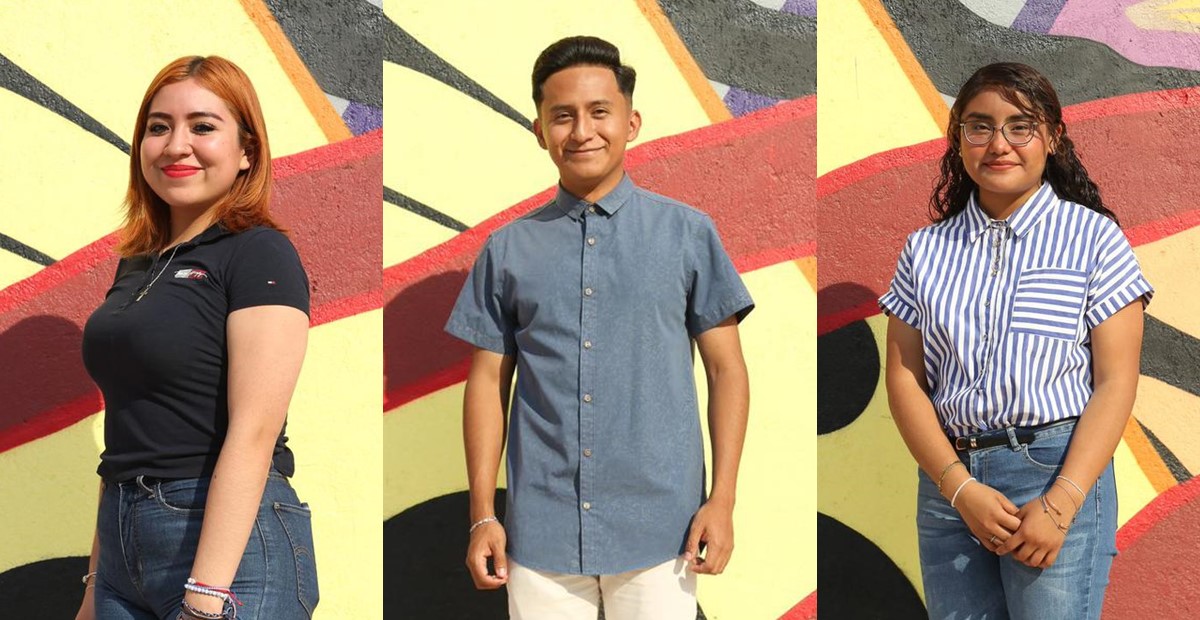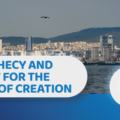
Workshop
Mexico: entrepreneurship from the periphery

Three youth that never give up on accepting what is a condemnation for their land, transforming it in a business opportunity. With an eye for integral ecology and a heart for fraternity.
Starting is never easy. We all have experienced, at least once in our lives, the fear and uncertainty that accompanies us towards a new beginning. If we add a social context full of obstacles, the situation becomes complicated. But it is from this challenge that the desire to create something new is born, to contribute and even start a company.
The Mexico City is a place with immense riches, for its people, its culture, its beauty. It is a chaotic yet harmonious city. Its vivid colors catch the eye of those who visit it. The imposing ancient and modern buildings almost make one forget that behind them are also piles of stones. Stones, not to say rubble. Or rather suburbs…
Nezahualcóyotl, a name hard to pronounce but easy to remember. Nezahualcóyotl is a municipality on the outskirts of Mexico City that, through three dumps receives the waste of 1.2 million people. Many of its villagers have been collecting and selling the waste for generations: an activity that provides a living for many families and has been carried on over time. It is an activity that has become a condemnation of poverty, the lack of access to education and other basic services.

How is it possible, then, to do business in these conditions?
Next to a penitentiary institute and a few meters from the Bordo de Xochiaca landfill is the Universidad La Salle. For 15 years, this university has been promoting higher education for the youth of the area, offering them the opportunity to imagine wider horizons and a better future.
Quetzal, Johnatan e Monserrat are three economy and commerce students. They are naturally attracted to the corporate world, business and the possibilities that these offers to change the reality of their municipality. But they wanted to go a step further and start to lay the foundations of what could soon become a company that generates a positive impact on the society and the environment.
The issue regarding waste management is a daily reality, but the three youth decide to stop considering it a problem and transform it into a business opportunity. The goal: to produce textiles from plastic waste or PET containers. That is to produce a yarn from these waste materials and promote a fashion industry that, instead of generating more pollution, reduces it.
The spark that ignites these new business vocations is a conference held by the youth of The Economy of Francesco. In particular, Diego Perez, a young entrepreneur, emphasized on the importance of creating companies with a social vocation and an impact on the “common home”. Thus, a journey in which academic training, case studies and practice converge, is born.
“We wish to show society that us youth can all be agents of change, that a new economy is possible – says Quetzal – the first thing we did was observe the environment around us and identify its distinctive elements”.
Next to the university is one of the largest landfills of Latin America. “Obviously the plastic waste and the PET containers are everywhere, and they are problem” continues Johnatan.
The company’s startup presents different stages. The first is the formation, based on the principles of The Economy of Francesco and of the Social Doctrine of the Church. Now, in the second stage, the funds to purchase the machinery are collected. The idea is that of entering the fashion world through the resale of articles and garments to avoid the overproduction of clothes, since it is estimated that the fashion industry uses 93 thousand million cubic meters of water per year, and produces 20 per cent of waste water.
Entrepreneurship as a service tool
The project that leads to the birth of a company is called “Jasen tupac” that in the Náhuatl language means “Glorious soul”.
It is with this great enthusiasm that the three of them prepare themselves to manage this project, to become its administrators.
“The word “administer” derives from the Latin word “administrare” and mean “to serve”: ad – (towards), minister (servant). “Whoever manages an entrepreneurial project is none other than a servant, someone, that is, who serves their own community. When you realize that as an entrepreneur you are but a servant, you put yourself in the attitude of washing the feet of others, through the creation of a process of buying, selling, distributing and everything else that is virtuous,’ concludes Diego Perez.
What began as a conference became a workshop that traces new prospectives for the youth that have decided to embark on an entrepreneurial dream and in that of helping their own community and environment.






